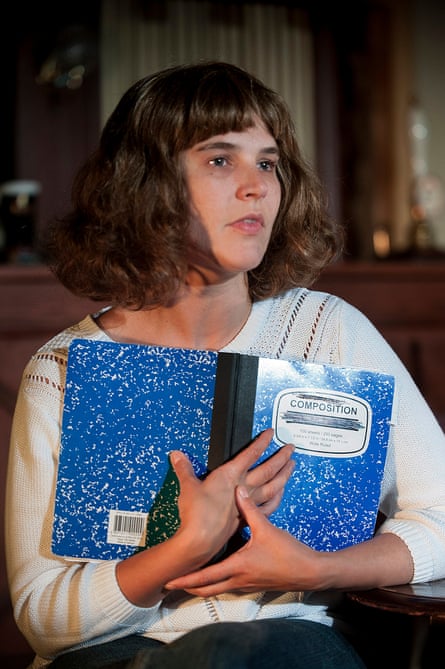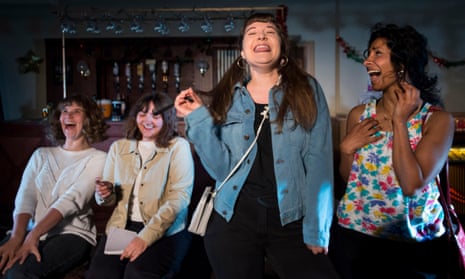Andrea Dunbar’s legacy reads like those of so many who lived intensely and died young. Almost 30 years after her death, she’s remembered as much for her turbulent life as she is for her brilliant and brutally honest plays.
Adelle Stripe’s novel and Lisa Holdsworth’s stage adaptation deal with both, exploring how Dunbar’s semi-autobiographical plays exposed her and those around her to public scrutiny. True to Stripe’s book, Holdsworth frames the play with the last moments of Dunbar’s short life. Holed up in the local pub, Dunbar (Emily Spowage) cradles her aching head and thinks about the past. Memories come alive in front of her, as her younger self (Lucy Hird) hangs around the Buttershaw estate and scribbles secretly in notebooks. In Holdsworth’s snappy, engaging adaptation, the drama becomes a sort of dialogue between Dunbar’s older and younger selves as they look at one another across the years.

More than anything, the play is about Dunbar’s love-hate relationship with writing. Her notebooks are her prized possession, carried around in bags clutched tight to her chest, yet she concludes that writing plays “causes too much fucking bother”. Hannah Sibai’s detailed design confines the action to Buttershaw’s Beacon pub, immersing Dunbar in the place she forever carries with her. The stories of the estate fuel her playwriting, but her depiction of Buttershaw also comes back to bite her.
Performed by an impressive cast of five women in this Bradford pub venue, Kash Arshad’s production pointedly sidelines the “useless men” who let Dunbar down – from her dad to her boyfriends to Max Stafford-Clark, whose enthusiasm for Dunbar’s writing ultimately faded. In many ways, the show is a celebration of fierce, resilient women: Dunbar’s no-nonsense mother, her candid best friend Eileen, the women who encouraged Dunbar’s writing, and of course Dunbar herself.
Both Stripe and Holdsworth are careful to stress that Black Teeth and a Brilliant Smile is fiction, not biography. Nevertheless, it raises the question of whether we should finally let Dunbar’s work speak for itself – a fraught debate that the play itself implicitly alludes to. What do we really care about, the woman or the art?
